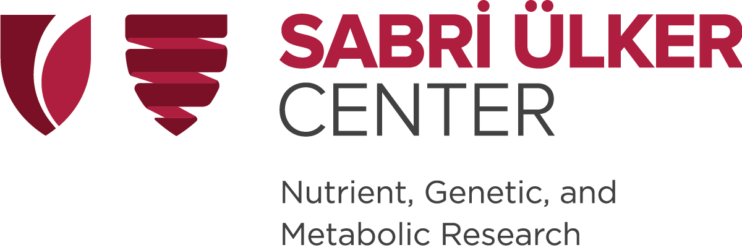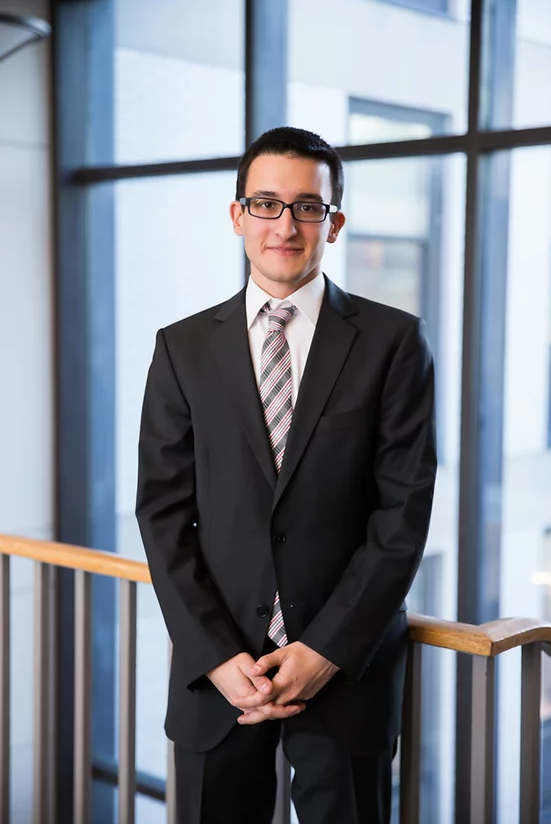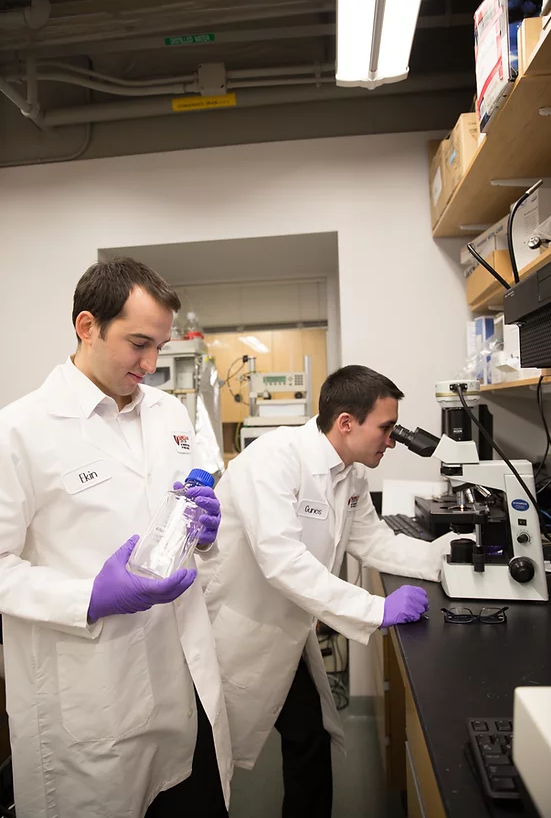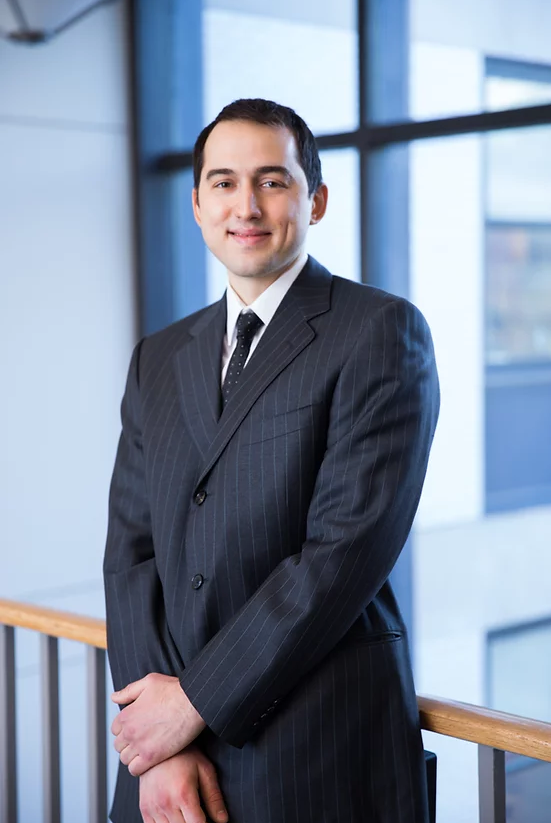The Harvard T.H. Chan School of Public Health extends a warm welcome to newly appointed Ülker Center Fellows Dr. Güneş Parlakgül and Dr. Ekin Güney.
Dr. Ekin Güney recalls being fascinated as a child by the medical instruments and equipment in his grandfather’s office, bombarding the physician with questions about his practice and experiments. “From the time I was eight years old, I never wanted to be anything other than a scientist or a doctor,” says Dr. Güney. “So many people have taught me and influenced me in many ways, but there were three people who gave me the most perspective: my father taught me to try to be the best in everything I do, my mother taught me to relax and enjoy life through art and music, and my grandfather was an example for me about how to care for the wellbeing of people.” After an adolescence full of basketball and table tennis and preparing for high school while learning to play the blues, rock, and jazz on the guitar, Dr. Güney followed in his grandfather’s footsteps, pursuing a medical degree at Istanbul University, a top Turkish medical school and the oldest in the country.
Also deeply interested in science and technology since his childhood, Dr. Parlakgül likewise attributes his professional inspiration to his family. As early as his teenage years, Dr. Parlakgül was already showing signs of his scientific brilliance: as part of a high school science project, he synthesized a molecule that could increase the efficiency of organic solar cells. His discovery went on to win the top prize in the Intel International Science and Engineering Fair, for which MIT named a minor planet – 23286 Parlakgül – in his honor. “We competed against more than 1,200 other young scientists from 52 countries. It was a great honor that led to my being accepted at both Brown University and Istanbul University,” said Dr. Parlakgül. “I decided to stay in Turkey because the medical school at Istanbul University allowed me to gain hands-on experience in an actual emergency department and operating room.
Drs. Güney and Parlakgül met during their first week at Istanbul University. They became project partners and began tostudy Behcet’s Disease, an autoinflammatory disorder. Their work was published and won a prestigious Eczacıbaşı Medical Award. While the two young scientists worked day and night in the lab, they still managed to participate in the University’s basketball team, rock climbing, paragliding, and scuba diving student clubs. “We wanted to learn from the leading scientist in the biological sciences, so we began to find ways to meet Professor Gökhan Hotamışlıgil,” recall Drs. Güney and Parlakgül. The tenacious duo contacted Prof. Hotamışlıgil and also asked one of their professors to follow-up on their behalf, and they followed him to the National Congress of Diabetes in Antalya and the National Obesity Congress in Istanbul. After petitioning Prof. Hotamışlıgil for a summer internship, Drs. Güney and Parlakgül spent two months in the Hotamışlıgil lab at Harvard School of Public Health. As Dr. Parlakgül recalls, “Ekin and I had read Prof. Hotamışlıgil’s scientific papers and we found the relation between obesity and inflammation to be very interesting. We were thrilled to join the Hotamışlıgil lab in 2011 and have the opportunity to work with some of the top scientists in the world who are studying metabolic disease.”
Their brief internship led to a one-year enrollment in the Harvard Medical School Turkish Initiative Program where they studied and continued their research in collaboration with scientists at MIT. “We developed and published a new technique to culture neurons three-dimensionally in high precision, but we missed the special atmosphere of the Hotamışlıgil Lab so much that we went back to the School of Public Health for the rest of the year,” said Dr. Parlakgül. Over the course of the next year, the pair worked with a team led by Dr. Ana Paula Arruda focused on determining whether excessive contact between cellular organelles disrupts metabolism in obesity and diabetes. When asked what the most meaningful part of their experience at Harvard was at that time, Drs. Güney and Parlakgül concur: in addition to being in this great laboratory, it was working with Dr. Arruda. “She taught us so many things, mostly about being a good scientist, but also about life in general, like the importance of having a balanced life. She was a mentor and a best friend for us. We also taught each other a lot about science, art, and music and we really enjoyed the time we spent in the Hotamışlıgil Lab that year,” says Dr. Güney. “Ana’s mentorship, guidance, and friendship have been greatly treasured,” adds Dr. Parlakgül.
After completing their medical studies at Istanbul University in 2014, the pair was very happy to return to Harvard as the first Sabri Ülker Fellows in the newly established Sabri Ülker Center for Nutrient, Genetic, and Metabolic Research under the direction of Prof. Hotamışlıgil. A generous gift from Murat Ülker, on behalf of the Ülker family, established the new research center at Harvard and funds a diverse group of researchers from around the globe who have sought out a position working with Prof. Hotamışlıgil.
Drs. Güney and Parlakgül wasted no time getting reacquainted with their research team at Harvard and have already made critical contributions and published their findings together with Drs. Arruda and Mengel in the distinguished and authoritative scientific journal Nature Medicine–a highly difficult task for even the most established researchers. “While it is well-established that obesity generates cellular and molecular stress leading to abnormal functioning of many cellular processes, the mechanisms remain incompletely understood,” said Prof. Hotamışlıgil. “This study revealed that one of these mechanisms involves metabolic stress-induced structural changes within liver cells that compromise their function.” He also described how the generation of detailed images and meticulous examination revealed an exciting path for this discovery: “Their images were so beautiful that the journal selected one to be featured on the cover.” The researchers demonstrated that by disrupting the ER-mitochondrial interactions and calcium transfer, they could markedly improve the metabolic health of obese diabetic mice, pointing the way to a potential treatment target in humans.
“Prof. Hotamışlıgil always reminds us that the most important thing is not money, or fame, or publishing, but to do the highest quality and true science so that we can understand more about the biology of living organisms and nature,” Drs. Güney and Parlakgül reflect. As they begin their Sabri Ülker Fellowship at Harvard, the young scientists hope that developing their research skills will enable them to contribute to the scientific world and to humankind. “I am happy to welcome Ekin and Güneş to our group and most grateful to the Sabri Ülker Center for creating these opportunities for the most outstanding of young scholars,” Prof. Hotamışlıgil concluded.




You must be logged in to post a comment.